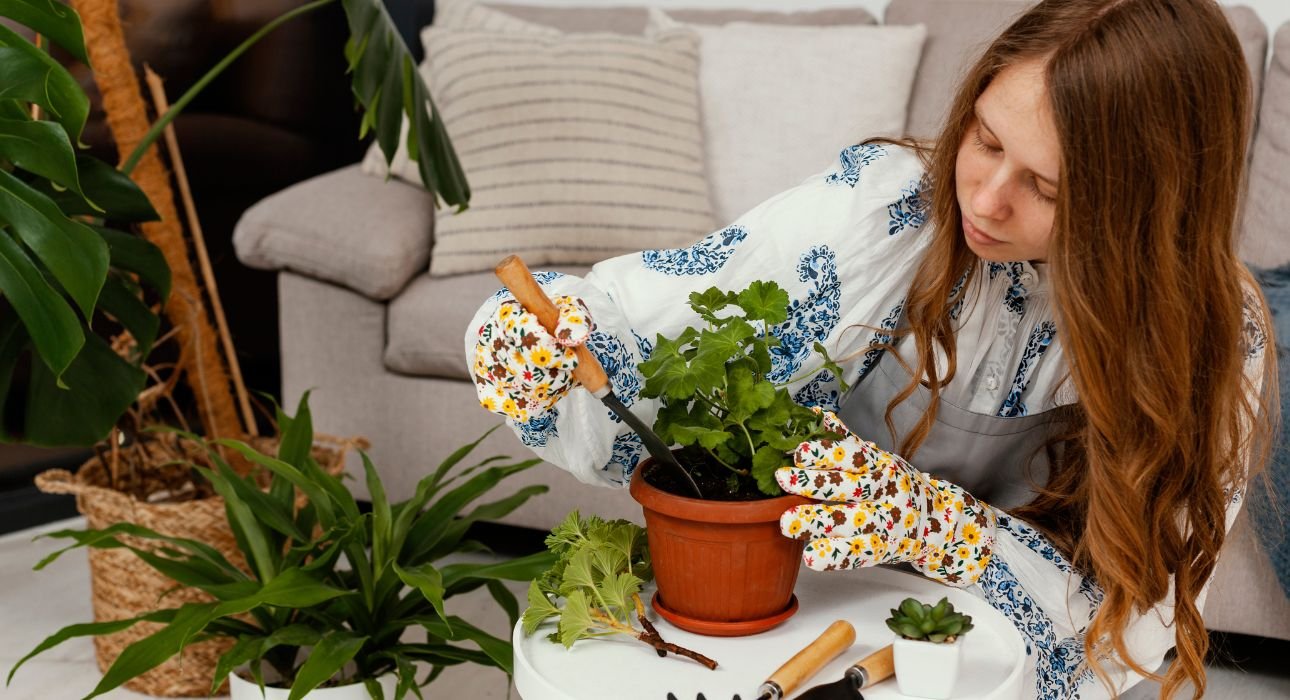Can gardening help to improve mental health? As we shall find out, the short answer is: yes.
Exposure to Nature Can Reduce Anxiety Symptoms
Exposure to green spaces and the natural world can calm the mind and ease mental tension (which surely we all instinctively know!). So, spending time around plants can actually reduce anxiety. Even simple additions like window boxes (such as the high-quality and durable ones available at flowerwindowboxes.com) brimming with flowers or herbs can provide that crucial touch of green – creating calming spaces that help to reduce feelings of anxiety. Having plants nearby helps remind us to:
- Slow down.
- Breathe deeply.
- Feel connected with nature.
Those small changes can have big effects on the positivity of your mental health.
Gardening Can Lower Cortisol and Stress Levels
Gardening lowers cortisol. That’s the hormone that’s linked to stress. (But you might already know that!) Engaging with soil, pulling weeds, or planting seeds creates a relaxing rhythm that soothes the mind. The tactile connection to earth grounds emotions while fostering a sense of calm. This physical interaction with nature works like therapy – quietly releasing tension as you focus on nurturing growth. Over time, it helps regulate your body’s stress response naturally and effectively.
Gardening Tasks Stimulate Dopamine Production
Completing tasks in gardening, like harvesting vegetables or seeing flowers bloom, triggers dopamine release – which, as you may know, is a chemical that enhances mood. Accomplishments signal your brain to feel good. With gardening, these moments come naturally as plants grow and thrive under your care. Whether pruning branches or planting seeds, the steady progress you see creates small bursts of satisfaction. Over time, this cycle supports emotional resilience and overall mental health.
Gardening Routines Can Abet Mental Stability
Regular activities like watering, pruning, and planting offer consistency that can be soothing during chaotic times. This predictability helps create balance by encouraging focus on the present moment. Repetition fosters comfort and builds a sense of order amid uncertainty. Caring for plants also introduces healthy responsibility. Watching over living things establishes patterns of care and nurturance, promoting emotional steadiness through daily interactions with nature.
Sensory Engagement in Gardening Can Improve Focus
The textures of soil, colours of blooms, and scents of plants all engage the mind fully at the moment. This sensory stimulation promotes concentration. How? Simply by redirecting thoughts away from stressors. Handling seeds or noticing new growth encourages attentiveness to immediate surroundings. Immersing yourself in these natural stimuli can improve focus over time. By staying present during gardening tasks, mental clarity increases as scattered thoughts begin to settle.
Physical Movement During Gardening Can Boost Endorphins
The activity of gardening involves physical movements like:
- Digging.
- Planting.
- Lifting.
Such activities stimulate endorphin production. If you’re not aware, endorphins naturally enhance mood and reduce stress.
Time Spent Gardening Can Lower Feelings of Loneliness
Gardening offers a meaningful way to combat loneliness. Caring for plants creates a sense of companionship, as living things rely on your attention and effort. This connection provides comfort by fostering purpose in daily life. Spending quiet moments tending to growth replaces isolation with fulfilling activity. Even solitary gardening allows time to reflect while engaging with nature, creating opportunities for emotional balance. Over time, these interactions contribute to reduced feelings of loneliness and greater inner peace.
Gardening Can Promote Mindfulness Practices
Mindfulness, or the act of being present at the moment, can be naturally integrated into gardening. The activity encourages focus on immediate tasks while setting aside distractions. Gardening allows moments to:
- Pause.
- Reflect.
- Find joy in small details.
Here are just some ways in which you can utilize gardening to encourage mindfulness:
- Focus on Sensory Details. Notice colours, textures, scents, and sounds during tasks.
- Set an Intention for Each Session. Approach each gardening session with a clear purpose.
- Breathe Deeply While Working Outdoors. Take intentional breaths as you water plants or pull weeds.
- Practice Patience Watching Growth Over Time. Embrace the gradual progress plants make daily.
These habits can foster mindfulness – without requiring formal meditation practices. By weaving these moments into your routine through gardening activities, your mental clarity can naturally improve over time.
